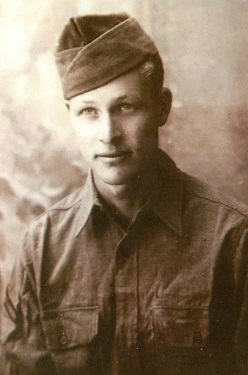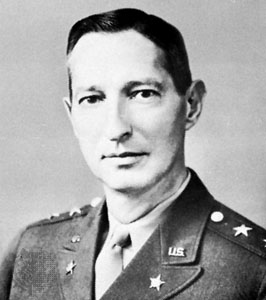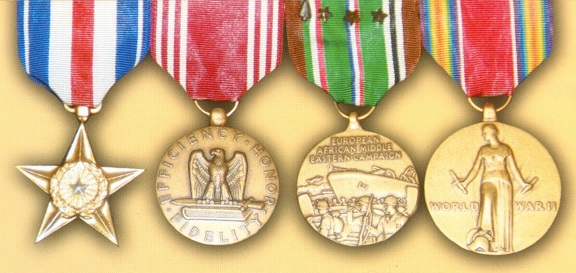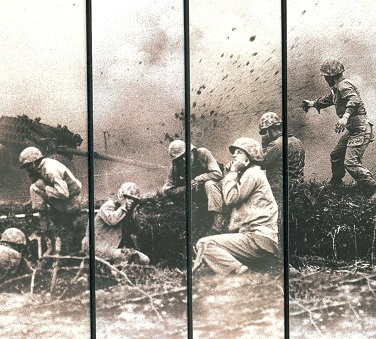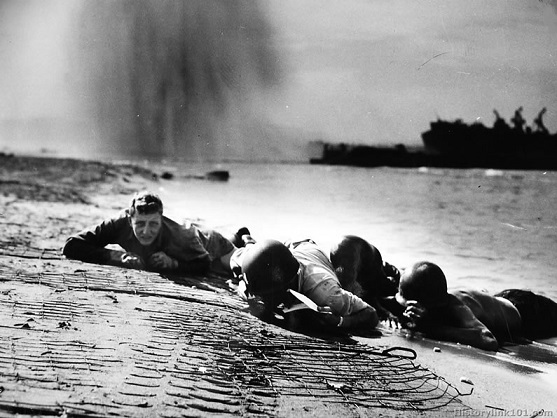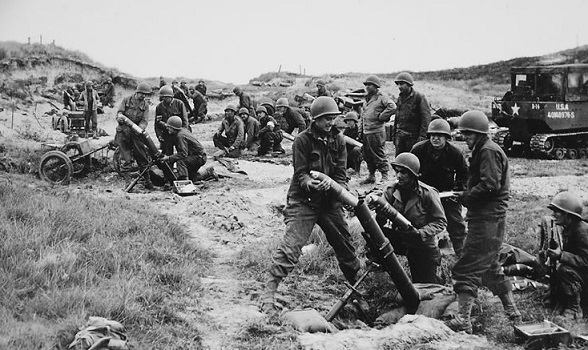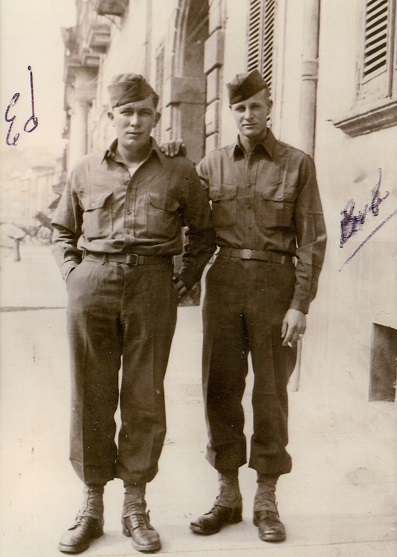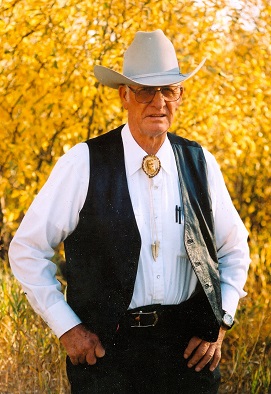|
home | what's new | other sites | contact | about |
||
|
Word Gems exploring self-realization, sacred personhood, and full humanity
Robert O. Feland My 90 year-old friend, WWII veteran -- awarded the Silver Star by General Mark Clark for walking through a minefield to save wounded buddies -- and his amazing psychic abilities during the War
Editor's note: Through chance and circumstance, I happened to meet Bob. What a benefit to have made his acquaintance. Bob offered me his account of the War, which I received as seven hours of taped interview. His exploits, I believe, could form the basis of a blockbuster movie.
****************************************
In 1966, when Charles de Gaulle ordered France out of NATO, and American troops off of French soil, U.S. Secretary of State Dean Rusk confronted de Gaulle and pointedly asked if that included the thousands of American soldiers lying dead in the cemeteries at Normandy and throughout the rest of France. Charles Krauthammer
June 6, 2010 - 66 years after the D-Day Invasion There is a banal theory of history which suggests, disingenuously, that even heroes of the past deserve no real credit for their accomplishments; that, fundamentally, they, and what they did, were merely products of their time - simply flowing, drifting, in the rushing currents of historical forces swirling about them. Such view might be convincing only to insulated academics who seek to justify their own walter-mitty lives. All that I shall say to them is... you've never met Bob Feland.
Editor's prefatory comment, offered 14 years after the original publication of this writing:
PART I The War Memoirs of Robert O. Feland
Bob was 21 when he entered the War
Editor’s note: I feel compelled to interrupt this writing, though it’s hardly progressed past introductions – Bob was 21. (sigh) 21. President Reagan once commented, "Our minds play a trick on us. We see the [World War II] soldiers as old and wise … like the Founding Fathers, grave and gray-haired - but most were boys when they died.”
One Step, Last Step: March of Death in a Minefield
"I had to try to help them. I couldn't just stand by. They were my friends." "If I die, I die. But I have to try!" Bob's solemn words can do nothing but arrest a listener's attention. A group of ten GI's were stranded, not daring to move, in the midst of a minefield, carefully laid as trap. Many of their fellows, now lifeless corpses, dismembered and shattered by the unforgiving hidden explosives, lay prostrate, silent, before them. My frail, but still active, friend, these days, sometimes has trouble with his memory; but he will never forget the events of that long-ago place and time. "I saw those guys over there, and I knew that I couldn't live with myself if I didn't try to help them. If I die, I die. Death was all around me, anyway, every day, for those years. You never knew when a shell would land next to you, and the guy you were just talking to would be dead. So, what the hell, there's no safety anywhere... if it's my time, it's my time... but I just had to try to help those guys." Bob stares into the distance. He remembers, too well, what happened next.
"Stick close to me! Do exactly what I do! Walk careful, or we're all gonna die!" "There was a buddy with me, and I said to him, if he wanted to, he could go with me and try to get those guys out. So we both headed into the minefield, but I told him, walk exactly where I walk, in my steps. Don't drag your feet, lift them! Walk slow! Stay close to me, do what I do! Let's go!" These two - very young men, in their early 20's - began to make their way through "no man's land." Bob relied on his best sense and judgment regarding where mines might be planted. The gauntlet-of-destruction to be traversed was a distance of approximately the length of a football field - plenty of opportunity in this game of minefield-roulette for one misstep to be one's last. "When we got to where the guys were, I could see they were in bad shape. A lotta guys dead all over the place. I knew I couldn't help them. But I said to the living ones, 'We can get out of here, but you have to do exactly what I say, and walk exactly where I walk!'" They did so. And, miraculously, somehow, all were saved.
"You did what?!" A little while later, Bob's commanding officer demanded, "Feland, where have you been!" Bob explained. "You did what?! You mean you went over there into that!" - stated with a tone that meant to say, "You are crazy, boy!" The officer wrote a report about the incident and submitted it up the line. A few days later, Bob and his friend were summoned to see General Mark Clark, Commander of the Fifth Army, in charge of the invasion of Italy, who presented each of them a Silver Star, commendation for bravery beyond the call of duty. Bob remembers the kind words and praise from the famous General: "You boys really did something good, really something! I’m proud of you! The army should be filled with guys like you. Let me shake your hand!"
General Mark Clark
"To: Robert O. Feland, 37278183. Under the provisions of Army Regulations 600-45 as amended, you are awarded a Silver Star for gallantry in action. CITATION: Robert O. Feland, 37278183. Private First Class, Medical Corps, United States Army. For gallantry in action on 22nd of February, 1944, near Anzio, Italy. Private First Class Feland responded to an emergency call for aid-men to administer first aid to wounded assault troops who had entered a minefield in darkness. Upon arrival at the scene of the accident, he found twelve casualties lying in scattered parts of the field. With complete disregard to his own personal safety, Private First Class Feland entered the uncharted mine field, personally escorted several wounded men from the dangerous area. After rendering first aid to these men, he arranged for their evacuation by ambulance. Private First Class Feland's courageous and selfless action reflect credit upon himself and the Medical Corps. MARK W. CLARK, Lieutenant General, US Army.
"you are awarded a Silver Star for gallantry in action"
Untold Superhero Tales The above account of Bob's triumph, of Homeric proportions, has been presented in print elsewhere. It is my purpose to offer additional information. I was privileged to receive seven hours of recorded audio-interview from Bob - the complete content of which deserves exposition in an entire book; maybe, a movie. There is a particular aspect, one most compelling, concerning Bob's military ordeal that has never been made public. I will get to that shortly; however, before I do, allow me to briefly offer capsule summaries of Bob's remarkable war-memoirs, some of which might be lost to history if I do not mention them here:
"we were like animals" For over three years Bob lived out-of-doors - in all kinds of weather, including snow and ice. "I learned how to heat a tent with a single candle, and how to pitch that tent in the rain, so that it would not leak." Often, after miles, sometimes days, of marching, Bob's boots and socks would not only be soaked, but the skin on his feet, if he would allow it, might easily peel away, like a spent banana skin. To counteract this, he learned to help himself by removing boots and socks and running barefoot in the snow, which, he found, would restore firmness to his flesh. "We were like animals!" Bob reports that, after so long a time, living in the open elements, as a veritable creature of nature, it became uncomfortable to be indoors, too warm, where he felt it difficult to breathe.
Bob lost so many buddies, killed or maimed, that he could hardly bear to make friends with anyone. "I came to the point where I didn't want to know anyone's name. I didn't want to know where they came from. It was too hard to lose so many good men."
"flies were in my mouth" At Mannheim, Germany, the retreating Nazi troops, in an effort to slow the advance of the Allies into their homeland, had knocked out bridges over the Rhine. "There were 4 or 5 bridges down. And the river water was swift as heck there, really moving fast. We were trying to run pontoons across, and the Germans were just shelling the hell out of us. I wasn't supposed to be there with the ambulance until 9 o'clock that night, but I was down there at 3 in the afternoon. And shelling, oh, my gosh, I tell you, all around you, just BOOM, BOOM, BOOM, BOOM, BOOM... and PING, PING, PING, bullets hitting the ambulance, and you're losing glass... I got down there, and [in a minute] I was loaded [with the wounded]... and I was driving 3 miles out of there to our hospital, and there were shells falling all the way... there were so many shells in the air that night that you didn't need lights, you could see where you were going, the whole sky was lit up, just BOOM, BOOM, BOOM, BOOM... and it went on like this all that night, and all the next day, and all the next night, without stopping! When I'd get to the hospital, some would be dead, and there would be 2 inches of blood in the truck from all the bleeding! I was so tired from being up for 2 days straight, driving back and forth with the wounded, that finally, when things quieted down, I just passed out. When I woke up, my mouth was open - and flies were in my mouth."
crème de menthe: drunk for a month The stress of living on the battlefield; of never knowing if the next moment might be one's last; of seeing friends eviscerated by shrapnel; exacted a heavy psychological toll on all of the warriors. With grief, Bob remembers an all-too-familiar phenomenon. Men would come off the front-lines, dazed, disoriented... and then, the dreadful sound of a single shot... "pop... first one, then another... pop... then another... pop" ... exhausted men, who could no longer live under such conditions, would take their own lives! Bob decided against this kind of remedy, but he dealt with the crushing stress in his own way. After capturing a German stockpile of crème de menthe, Bob recalls that he was "drunk for a month"! For over three years, he'd been given no time off! - not a single day away from the war! And he jokingly states that, during his time with the bottle, such a welcome respite from unimaginable terrors, nothing mattered, not even driving to the front-lines could bother him.
"I'll ram this into your f*****g belly" As the U.S. Army inexorably advanced toward the borders of Germany, Bob remembers one evening in a small village. There was a makeshift bar, an ancient stone building, and he and his buddies spent a few hours there having some drinks. Suddenly, a somewhat-large fellow, probably inebriated, accosts the slender Bob and demands that they go outside to fight. Instantly assessing the unfavorable odds, Bob reaches for a beer bottle, smashes the end of it, and, menacingly waving the jagged shard at the aggressor, threatens with, "Come on, you want me, come and get some, I'll ram this into your f*****g belly." At this point, Bob's buddy, Homer, a 300-pound logger from northern Minnesota, bellows, "What the hell's going on there!?" Bob laughs as he recalls Homer, a gorilla of a man: "He had hair this long on his chest," indicating a few inches! Then, like a dangerous projectile finding its mark, Homer's hairy arm lunges toward the assailant, and with that one quick grabbing fist, picks him up, sends him sailing like a paper airplane, crashing, straight through the bar-room doors, out into the mud of the street! Homer had stepped up to the plate, smashed a line drive to left field, and the other guy was out! Bob remembers that he and Homer would often "watch each other's back," rescued each other, throughout the whole war! Editor's note: Homer made it back to his hometown of International Falls, MN - but, one night, an intruder broke into his home and shot him to death, right in his own bed! Bob believes that he had made enemies in the logging camp.
a sniper's sporting activity Bob was part of the D-Day offensive; moreover, he asserts that he played a role in 5 amphibious landings, of the most perilous sort, made under entrenched enemy fire! Bob speaks of the soldiers, while disembarking the landing-craft, mortally hit while coming ashore, and, with 70 pounds of equipment on their backs, would immediately sink into the watery abyss, far out of reach for anyone to help. There was a sniper, holed-up in a small building, picking off GIs as they made their way onto the beach - but this assassin-in-the-shadows would soon find his own time in this world cut short as Bob's group advanced toward him, lobbed a few grenades through the sniper-portal, and abruptly crimped his sporting activity.
"no German could speak American like that" On the march to Germany, Bob and a few other men found themselves cut off from the Allied front, in a village, behind enemy lines. They sought cover in one of the houses and spent much of the night there. Bob remembers: "Just outside the house was a road, and all night the Germans marched by, and their trucks and tanks rolled on, just a few feet from us. In the darkness, we finally decided to make our move, and head for the countryside. But we didn't know which direction to go. We listened to the gunfire and recognized the sounds that the American guns made, so we headed in that direction. We finally made it to our line, but the American sentry shouted at us to stop, thought that we were German spies, and was about to machine-gun all of us! But one of the guys with me suddenly started cussing a blue streak, and called the sentry every damn name under the sun. The sentry was so shocked by this, and thought that no German could speak American like that - so he let us in!"
"SHOOT! BANG! ... he got all 8 tanks!" "Anzio was a tough landing. We were there for three months. We had 380 big guns from battlewagons and cruisers pounding the shore to keep the Germans back. On the first day of the landing I went ashore and climbed a hill. From up there, about a mile away, I could see 8 big German tanks coming fast for us. But a Navy boy, just a young guy - not Army, he wasn't dressed like us, he was dressed in blue - came running up to me, and lay on top of the hill beside me. He had a radio and could communicate with the battlewagon. He started shouting into his radio, 'latitude this and altitude that,' and then he yelled, 'SHOOT'! Next thing I saw was two big guns going off on the battlewagon, and the shells were lobbed over us, over the hill [in a deadly arc,] and 'BANG,' a tank exploded! The Navy boy did this again, 'SHOOT'! and 'BANG,' another tank went up. The Navy boy got all 8 tanks! It's a good thing he did, because if those tanks had gotten through, we'd all a-been goners, and we'd have lost the beachhead."
"I'm all she has now" The most touching story in Bob's collection, I suggest, is this one: As Bob drove his ambulance through the battlefields of France and Belgium, bodies could be seen to litter the fields and roadways. "The sad part about it, by this time in the War, I hardly even noticed, I had seen so much death." However, his attention was suddenly arrested by utmost tragedy. A dead young woman lay prostrate in a ditch. Next to her alabaster corpse cringed a whelping, hungry, tiny-tot girl of about three years of age. Bob abruptly stopped, flung open the ambulance door, and the angel-tyke scooted in. She didn't speak a word of English, but the two of them made fast friends. During the coming days, this French baby girl would shadow Bob in all of his activities, even going to the front lines, as no one knew where to put her! "What are you doing with that little girl?" the other GIs wanted to know! "I'm taking care of her. Her mother is dead, and I'm all she has now!" With great emotion, Bob relives the trauma: "I didn't know her name, but she was my little girl." Sometime later, French nurses came to take the child. The babe cried desperately, reached out to Bob, not wanting to leave her new father. "That was the last time I saw her," Bob comments in a near-whisper and with tears threatening. "If she is alive today, she will be close to 70."
President Ronald Reagan, June 6, 1984, Normandy, 40-year commemoration of D-Day: "These are the men who took the cliffs. They were what General Marshall called our secret weapon - the best damn kids in the world."
"gonna smash me to hell" "Later at Anzio, I was watching our tanks on top of a hill. But then a German shell hit a tank and the GI running the tank slumped over. I started running over to him to see if I could help. But I had to run through mud and swamp to get to him. Just then another shell landed near to me in the mud. But the shell didn't explode at first and sort of skimmed along in the mud, just under the surface, pushing up dirt as it went along (like a gopher trail). I was running, and I put my foot down, but, just at that moment, the shell skimmed right under where I was stepping, and it flipped me high in the air, and I landed on my belly in the swamp water." Other GIs who saw Bob fall would later say, "We saw you faint out there!" to which Bob angrily retorted, "You damn fools, I didn't faint, I was flipped by a shell!" Bob explained what happened to the wayward missile. "A few seconds later there was a big BOOM and the underground shell sent a lot of big chunks of dirt and rock flying high into the air! And all these big chunks - I mean, big things, some of them hundreds of pounds! - were landing all around me! - BOOM! BANG! SMASH! And I thought, 'Oh, my God, in a minute one of these things is gonna smash me to hell!' But, after some seconds, I was ok, it all missed me. I got up and ran to the top of the hill to the tank - but I couldn't help him, half his head was gone..."
"just wanted to kill them all" "Something terrible I witnessed. Some of our guys did some bad things. This lieutenant brought a bunch of German prisoners in, and told a sergeant to look after them. 'Sure thing, Lieutenant!' But when the officer drove away and was out of sight, the sergeant brought out his automatic and mowed them all down! This was terrible." I asked Bob why this would happen. "You have to understand, some of these GIs went a little crazy, were mad as hell. They had seen so many of their buddies blown to bits, friends machine-gunned, even guys killed while going to the bathroom, snipers would pick them off. And some of our guys were so mad at the Germans and just wanted to kill them all. I don't say it was right, I only say that this is why it happened."
Editor's note: The recorded hours of Bob’s testimony, a prized possession of mine, reveal a dizzying array of Man at his best and worst. As I observe Bob sharing his experiences, often I find him at a loss for words... he stammers, he searches to explain, he sighs deeply... and it's evident to me, from body language and troubled spirit, that he is reliving the terrors of that dark time - and, even to this day, cannot fully accept that civilized people would actually do these things to each other! that, these things actually happened - happened to him! an ordinary farm-boy from Almont, North Dakota, who loved horses and the open prairie.
the Great Valley of Death: "not one living thing in that whole 8 miles" On the march to Germany, Bob describes a killing field of mammoth size, a Great Valley of Death. "The Germans were trying to get away from us as fast as they could. There was a long line of German tanks, trucks, troops, artillery, and lots of horses, too, pulling wagons, all trying to retreat, and they were climbing all over each other just trying to get away. This line was 8 miles long!! 8 miles filled with all of these men, animals, cannons, and vehicles. They were moving through a valley, and our fly-boys took this chance to box them in. Our planes blasted bridges and roads at the front of this line, and did the same at the rear - there were no other roads for escape, so they had nowhere to go, just all boxed in. Our planes started pounding them with bombs, strafing, raking them. At the end, I'd never seen anything like it. There wasn't one living thing in that whole 8 miles! Everything had been blown to bits! The Germans had laid mines behind them to trip us up, but we didn't find even one active mine! Every mine had been blown up! Dead men everywhere; heads, arms, body parts, everywhere. And all of those big beautiful horses, too, all dead! - the Germans lost a lot that day."
lucky 13 After basic training, Bob's troop transport-ship headed for North Africa, where, on August 7, 1942, they landed under heavy fire. Bob had been assigned to a certain landing-craft, but, at the last minute, was ordered to another boat. This second one, too, would not work out for him, and, once again, he was reassigned, this time to Higgins Boat #13. "I didn't like the idea of going on a number 13, but I went anyway. While boarding the boat, and while it was being lowered down into the water from the main ship, I fell and landed on my head. I could have broken my neck, but I was ok. We made it onto land without getting all shot up. The next day, though, I found out that both of the other two landing-boats, ones that I almost went on, had taken direct hits by cannon fire - and all aboard those two boats were killed! From that time on, number 13 was my lucky number."
An amphibious landing, men pinned down, on the beach.
"our throats slit" Before leaving North Africa, after securing the area with intense fighting, Bob and a buddy were having a drink in a Moroccan village bar. A French sailor, speaking with broken English and with hand-signs, approached Bob with a warning, of which the sense was this: "See those French Foreign Legion guys over there? They are bad s***. They are going to kill you!" which was said with repeated horizontal figure-gestures across his neck. "You need to leave now!" The French sailor, and a couple of his friends, walked with Bob and his company back to the Allies' camp, with the Legionnaires in close pursuit of all. Bob recalls: "We made it back to camp, and the French navy guys went on their way. If they hadn't helped us that night, we'd have had our throats slit!"
"I’d a been butter!" "It's hard to explain how dangerous it is having cannon fire rain down on you. We dug in, and even used sandbags, if we could get them, to strengthen our trenches and foxholes. We could make them strong, and if a shell landed even only several feet away, we'd be shaken up a lot, but we’d be ok. The only thing that could hurt us in those dug-in places would be a direct hit by a shell. If that happened, I’d a been butter! Sometimes, there would be a direct hit. I was part of a medic team, and we had to go into a hole where 8 of our guys had been, but it took a direct hit. There was nothing left in there. We collected one helmut-full of flesh! that's all - that's all that was left of 8 guys. They were turned into butter."
Bob Feland: "You would think, after so many years - hell, after 70 years! - that a guy would forget some of those things... but s***, you don't forget. I'm out in my yard today, mowing grass, and I think of this, and I think of that from the War; and, let me tell you… you don't forget."
"They ain't got you yet, huh, Feland!" "I was driving a truck, and far ahead of me, up in the sky, I saw this German fighter plane swooping in fast to take me out. I saw a bomb falling, coming right at me. I had just enough time to jump out of the truck and hit the ditch! There was a big explosion and the windshield and the whole top of the truck were torn off, just gone. The plane flew on out of sight. And the thought went through my head, “Can I still drive this thing?” The keys were still in the ignition, I tried it, and the motor turned over just fine, so I drove it back to camp this way. The guys started laughing at me when they saw me dragging in, and said, 'They ain't got you yet, huh, Feland!' It was funny."
"I saw daylight under the ship!" "Something else I saw at Anzio. One of our cruisers was coming closer to the shore, trying to get into a better position for its big guns. I was only about 200 feet from it so I could see it very well. But suddenly there was a big explosion. BOOOM!! The cruiser had hit a mine! and I saw that big ship go straight up into the air. I mean, I could see daylight under it! There was a sailor, a black man, high up on the mast, and he was blown out into the water. He survived, he was the only one, I think. There were 3000 men on that ship who died that day."
World War II claimed 50 million lives. Most of the action was created, and endured, by very young men - from cities, towns, villages, and farms, all over the world; many of whom, like Bob, had never been 50 miles from home, but now suddenly found themselves on the other side of the globe, waging herculean battles; engaging in warfare, of the unfathomable kind; experiencing death and destruction on a scale never witnessed before in the history of the world. It was a fight to the death, with enlightened civilization, itself, hanging in the balance, utterly threatened by the advent of a totalitarian-led Dark Age. All this profound drama and portent, the destiny of the world, resting on the shoulders of very young men.
Ed Olsen (left) and Bob
PART II The Whisperings of Heaven
There is an untold aspect of Robert Feland's military memoirs. For 70 years he has rarely spoken of it. During those few times of candor, he says that people have not believed him. However, I judge the following testimony to be credible. Bob survived the War - over three years of it - and, as he puts it, "every damn thing imaginable," without incurring so much as a scratch. This statement is all the more remarkable as we learn from Bob that... Bullet holes were found in his clothing. But Bob was never shot. Equipment strapped to his side was found with bullet holes, and, at times, ripped from his hip. But Bob was never shot. Equipment strapped to his back was damaged with bullet holes. But Bob was never shot. His work as medic and ambulance driver was more dangerous than that of the typical GI on the frontline. These others will find whatever cover might be devised, but a medic, unprotected, will press into the open fire to aid his fallen fellows, and, in so doing, make himself a target for snipers. But Bob was never shot. His ambulance came to be so riddled with bullet holes - the entire body of the vehicle so shot to pieces - that it had to be junked! But Bob was never shot. Too many times, men standing next to him, in the next moment, would be dead or maimed. One time, a bullet passed through Bob's clothing and hit the man next to him! But Bob was never shot.
Editor's note: I recall Churchill, a soldier in his youth, exclaiming: “There is nothing more exhilarating than to be shot at with no result.” How many times was Bob shot at? 10,000 times? 50,000? Simple probability informs us that mere random luck cannot account for his durability, given his high-profile target status. How do you survive when the other side tries to shoot the medic just for the sport of it?
As we learn of such seemingly-miraculous survival in the face of extremity, we might philosophically offer that "somebody was praying for Bob"; or, "it just wasn't his time"; or even, "Bob was one of the lucky ones." All these explanations have merit, and some of this rationale might offer a measure of understanding. But Bob reported to me that there was something else that saved him.
Internal Guidance Systems Think of a Geiger counter - that scientific device which makes a warning, clicking-sound in the presence of radioactive emission. During the War years, Bob's "stomach" - the pit of his gut, as he describes it - became for him a warning device, a kind of Geiger counter, signaling to him imminent danger. Bob says it was like a "knot' in his stomach, a bad feeling. I will share with you several stories from Bob and will refer to this phenomenon as The Warning.
How Often Did This Happen? Was It Luck? Active Imagination? Wishful Thinking?
I wanted to know if this was real. I asked Bob, "How often did The Warning occur? Was it just a few times during the War years?" "No, it happened every day of the War! - many times a day." This means, we're talking hundreds, maybe thousands, of times. The Warning was no isolated event but a daily occurrence. "Bob, did you experience The Warning before the War?" "No, I had it only during the War, and when it was over, I never felt it again."
Was This a Secret? Who Else Knew About This? Corroboration is at the heart of credible evidence, and I wanted to know - did Bob's buddies know about The Warning? "They knew. They took it very seriously. There was a group of about ten guys, who, whenever possible, would go with me wherever I went. They trusted me and felt safe with me. And I saved them more than once. And they would ask me, How are you now, Feland? How's that stomach of yours? You feeling ok? Yeah, they knew all about it and took it very seriously."
"Ed! No! Don't go near it! I had an awful feeling! Quick, duck down, things are gonna happen!" "I always had those damn cramps in my belly when things weren't going right. The Germans were shelling the hell out of us, and Ed [Olsen] said, 'We better get to that [protected trench] over there, or we're gonna get killed out here.' And those shells were dropping all around, and the dirt was flying, and he said, 'Let's get to that [trench]!' And we were running towards it, and then I said, 'Ed! No!' And he said, 'What's the matter?' And I said, 'Don't go near it! Come over here to the side of this hill!' I had an awful feeling in my gut! 'Duck down, things are gonna happen!' and I said, 'Quick! Duck down!' and he could tell that I was pretty excited, so he ducked down. And I had no more than said that to him and ... [Bob now pauses, and then speaks very slowly, as he relives that moment] ... a shell landed right in that hole where we were headed and blew it all to hell! a direct hit! VARRROOOOM!! All my stuff was in there. I lost everything I had! That hole was so blown to hell that nothing was left in there!"
"15 seconds later, the building was gone" "We were on our way to Germany, and one night we were in this bar in some village. We were having a good time, everything seemed fine, but suddenly I felt The Warning, this pain in my gut. I knew what it meant, and I didn't waste time and started running to get out of there. My buddies [by now, knowing what my running meant] started running, too, and followed me. They didn't mess around if they saw me get serious. We got some hundreds of feet away and suddenly there was a big explosion. There was a shell, a direct hit on that bar! It was totally destroyed, and everyone in that building was dead. Someone knew that GIs would be there and set a trap for them."
Bob Feland today... the Consummate North Dakota Man: ruggedly handsome, self-directed, always the survivor, individualistic - sometimes, to a fault. But the horrors of war would wear upon even this Personification of Will and Fortitude: "I saw so much death, every damn thing imaginable, that, after a while, I sorta gave up hope of living, because I thought it would be my turn next. For years, the whole war, I thought that the next minute would be my turn to be carried out."
Sorry, Sir, I really have to run, we're about to be blown up! Bob did not actually say these words - but it's what he might have said if he hadn't been busy getting out of the line of fire of an incoming shell. "I was standing next to a commanding officer. He was talking to me. But suddenly I felt The Warning, and I didn't even bother to excuse myself, I didn't say anything to the officer, I just started running. Some seconds later, right where we were standing, a shell landed, and men were dead and maimed."
Walking the Minefield: Following the Energy As we've already learned, Bob navigated the minefield with his technical knowledge of those deadly matters. But there was more guiding him that day. He explained to me that he followed the energy of The Warning. If he "felt good," in his stomach, about stepping in a certain area, he would do that, and he would avoid those areas which registered negatively for him - and by this process he successfully traversed some hundreds of yards of what could have been instant death.
No real danger! "The shell was a dud and landed right between his legs!" "My stomach never failed me, but there was this time when I was nearby this guy in a [protected trench] where he was manning a machine-gun. A shell came flying in and landed right between his legs! a direct hit, right into his trench! But, the shell was a dud! It didn't go off!" "So," I asked in astonishment, "your stomach didn't warn you because there was no real danger?!" "I guess so, because everything was fine. If that shell had gone off, we'd all been turned to butter! But my buddy was so shaken up by this that he just got up and just started running around all goofy like!"
The Middle of a Killing Field: the Safest Place I think my favorite of Bob's Warning stories might be this one. Think of Band Of Brothers, the Battle of The Bulge. Do you recall how deadly was the cannon-fire, the shelling in the forest? Bob, not the first time, found himself in the midst of a similar situation. He and ten of his buddies were seeking cover from German artillery fire; but there was no readily-accessible place of protection. Where could they go? They were surrounded by exploding bombs, with flying shrapnel everywhere. But Bob noticed something. His stomach was not aching. He was not experiencing The Warning. And so he stopped running; his men did, too. And they stayed right where they were. Think of a Fourth of July evening with a grand fireworks display. with incendiary devices detonating, lighting up the sky. It was something like that for this group of men, huddled together, in the midst of a rain-of-destruction, a killing field. But not one of them was injured that night, even with deadly shrapnel flying like confetti – and this, as they were treated to the greatest light-show in Europe, with the best seats in the house.
Though I walk through the valley of the shadow of death, I will fear no evil... "When I knew I was in a bad spot, my stomach would tighten up, cramp up. But as soon as I would walk in a direction away from the coming danger, my stomach relaxed. And that's where I just stayed. I never doubted my stomach! When my stomach told me what was going on, I was a firm believer in my belly. And when my belly cramped - if I was talking to you, and my belly started to cramp, I'd move over to, maybe, from here to that tree [50 ft.], and BOOM! - you'd get shot! Now, who told me to get out of there? I don't know. But, I had this happen to my nerves, and my stomach, all, all, all, through the War! It never, ever failed me, either." "It never failed you?" I repeated. "No! And a lot of guys knew about this! And when I would say, 'Whoops!' and when I would say, 'Watch out!' and they would say, 'Again?' and I would say, 'We gotta go,' and we would start moving, and my stomach led me out into the open where it should have been worse, and more dangerous, but I said, 'Whoah! I feel good right here,' and everybody stopped, and went down on their knees, all stayed together, and seconds later, VAARROOM!! - two shells landed, right where we woulda been if we'd kept going. Now, you tell me why! At that particular time, there were about ten guys following me, and we'd all been gone - but they listened to me."
There was an additional psychic phenomenon experienced by Bob. It is somewhat different in kind from these others, but a noteworthy one and needs to be recorded here. At the time of the Anzio landing, a friend had given Bob an Elgin wristwatch. A short time later, this friend was one of many soldiers killed by an explosion. At the very moment of detonation, at the same instant of the friend's passing, Bob, who was 1.5 miles removed from the blast, noticed that the entire crystal face of his new watch had turned to powder. What is the meaning of this strange coincidence? I think I know. There is a book you might want to review, Hello From Heaven. It recounts many similar hard-to-explain incidents concerning just-departed friends and loved ones communicating last goodbyes via extraordinary means.
Postscript: One of the highest compliments I've ever received, Bob informed me that he has shared with me more of his war experiences than anyone else. "I like the way you wrote it. Everything you said is true, and I'm glad you told it like it was. I'm not a hero. I was just a guy trying to live through the War to get back home. But I knew men there who were real heroes, who did some things that I couldn't have done, and I wouldn't want to act like I'm a big shot and leave them out of the picture."
Update: Today I received a note from Dorothy, Bob's wife: "Bob went on the 'honor flight,' a free trip to Washington, DC for all World War II vets. He [and the other vets] just got back Saturday night to a big welcome at the [Bismarck] airport - bands, the Governor and his wife, and several politicians, and an airport full of citizens cheering them on. He was on tv last night, [featuring] a nice thank-you from several school kids. His nephew went with him [to DC] and [pushed Bob's] wheel chair..." Editor's note: Robert “Bob” Feland, age 96, of Almont, ND, died August 15, 2017.
Editor's note: It has come to my attention that other military personnel have experienced the same "sixth sense" known by Bob Feland:
The U.S. Military Believes People Have a Sixth Sense By Annie Jacobsen April 3, 2017 In 2014, the Office of Naval Research embarked on a four-year, $3.85 million research program to explore the phenomena it calls premonition and intuition, or “Spidey sense,” for sailors and Marines. “We have to understand what gives rise to this so-called ‘sixth sense,’ says Peter Squire, a program officer in ONR’s Expeditionary Maneuver Warfare and Combating Terrorism department. Today’s Navy scientists place less emphasis on trying to understand the phenomena theoretically and more on using technology to examine the mysterious process, which Navy scientists assure the public is not based on superstition. “If the researchers understand the process, there may be ways to accelerate it — and possibly spread the powers of intuition throughout military units,” says Dr. Squire. The Pentagon’s focus is to maximize the power of the sixth sense for operational use. “If we can characterize this intuitive decision-making process and model it, then the hope is to accelerate the acquisition of these skills,” says Lieutenant Commander Brent Olde of ONR’s Warfighter Performance Department for Human and Bioengineered Systems. “[Are] there ways to improve premonition through training?” he asks. According to the Pentagon, the program was born of field reports from the war theater, including a 2006 incident in Iraq, when Staff Sergeant Martin Richburg, using intuition, prevented carnage in an IED, or improvised explosive device, incident. Commander Joseph Cohn, a program manager at the naval office, told the New York Times, “These reports from the field often detailed a ‘sixth sense’ or ‘Spidey sense’ that alerted them to an impending attack or I.E.D., or that allowed them to respond to a novel situation without consciously analyzing the situation.” More than a decade later, today’s Defense Department has accelerated practical applications of this concept. Active-duty Marines are being taught to hone precognitive skills in order to “preempt snipers, IED emplacers and other irregular assaults [using] advanced perceptual competences that have not been well studied.” Because of the stigma of ESP and PK, the nomenclature has changed, allowing the Defense Department to distance itself from its remote-viewing past. Under the Perceptual Training Systems and Tools banner, extrasensory perception has a new name in the modern era: “sensemaking.” In official Defense Department literature sensemaking is defined as “a motivated continuous effort to understand connections (which can be among people, places, and events) in order to anticipate their trajectories and act effectively.” Over decades, wars change location and weapons design evolves, while man’s perceptual capacities remain relatively close to what they have been for thousands of years. Fifty years ago in Vietnam, Joe McMoneagle used his sixth sense to avoid stepping on booby traps, falling into punji pits, and walking into Viet Cong ambushes. His ability to sense danger was not lost on his fellow soldiers, and the power of his intuitive capabilities spread throughout his military unit. Other soldiers had confidence in this subconscious ability and followed McMoneagle’s lead. In a life-or-death environment there was no room for skepticism or ignominy. If it saved lives, it was real. Since 1972, CIA and DoD research indicates that premonition, or precognition, appears to be weak in some, strong in others, and extraordinary in a rare few. Will the Navy’s contemporary work on “sensemaking,” the continuous effort to understand the connections among people, places, and events, finally unlock the mystery of ESP? Might technology available to today’s defense scientists reveal hypotheses not available to scientists in an earlier age? At Naval Hospital Bremerton, in Washington State, defense scientists and military researchers are exploring cognition and perception in soldiers’ virtual dream states. Starting in 2011, as part of a research program called Power Dreaming, soldiers plagued by PTSD-related nightmares have used biofeedback techniques similar to those studied by Colonel John Alexander in the Intelligence and Security Command’s Beyond Excellence program, under General Albert Stubblebine. For today’s Navy, biofeedback has been updated with twenty-first-century virtual reality technology that did not exist 30 years ago. Sponsored by the Naval Medical Research Center, the Power Dreaming program involves a process called Cognitive Behavioral Treatment for Warrior Trainees. Participants are active-duty soldiers suffering from PTSD-related nightmares who are eligible to be sent back to the battlefield. The method, called redreaming, is alleged to be a learned technique that produces changes in the way one’s brain processes information. Its goal is to teach trainees to transform their debilitating nightmares into empowering dreams using bio- feedback techniques and computer technology. Biofeedback, born in 1962, draws on the idea that the human brain (millions of years in the making) can benefit from seeing itself work in real time. Some of the life processes the trainee can see in real time are his brain waves, heart rate, muscle tension, skin conductance, and pain perception. The process goes like this: when the soldier wakes up from a nightmare, he gets out of bed and goes to a nearby government-issued computer. He puts on 3-D goggles and straps a Heart Rate Variability biofeedback device onto his forearm so that biofeedback can be integrated into the redreaming process. Hooked up to these two devices, the soldier opens a software program called the Book of Dreams. With a few clicks on the keyboard, he enters the virtual world Second Life. Jacobsen is a journalist and the author of Phenomena, from which this was adapted, and the Pulitzer finalist The Pentagon’s Brain, among other books.
|
||
|
|





